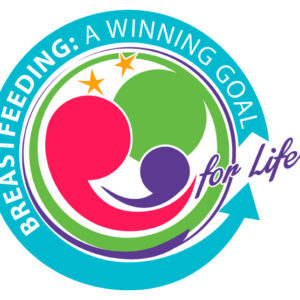Becoming a parent is one of life’s greatest joys. And once they lay eyes on their little one for the first time, any parent will tell you from that moment forward they’ll do anything to ensure the best for their child.
Are you interested in protecting your baby from type I diabetes, childhood leukemia, obesity and high blood pressure? What about lowering your child’s risk of developing allergies or even cancer later in life while boosting his or her intelligence? What if you could do all that while helping yourself lose weight and lowering your stress levels? If you’re a mom, you can do all that and more simply by breastfeeding.
“For a generation, we were told formula was better than breastfeeding, but research shows that’s simply not the case,” says Katie Skaggs, a lactation consultant with SSM Health St. Francis Hospital. “We need to get back to making breastfeeding a normal part of life and that starts with providing education and support to moms.”
Skaggs says one of the most important things to remember is human milk is made for human babies. But what makes it so special is it adapts to meet baby’s needs.
“The first milk, called colostrum, contains antibodies passed on from mom to baby to help protect the newborn from any type of ‘bug’ that mom has been exposed to,” says Skaggs. “The other thing colostrum does is coat the lining of the baby’s stomach to protect baby from any bacteria it might ingest. Formula just doesn’t do that.”
Breast milk’s nutrients also change over time to meet baby’s growing needs. If baby needs more calcium, mom’s body will provide more through her breast milk, for example.
So why don’t more women breastfeed? Skaggs says there are many reasons including misconceptions that formula is better, not enough encouragement from other family members, going back to work too soon. Also, some moms and dads worry that baby isn’t getting enough nourishment with just breast milk. But Skaggs notes there are resources available to closely monitor the baby’s needs.
“We watch what the baby puts out – the number of wet diapers, dirty diapers – and we ask moms to keep track in a log. Every day for two weeks there are output goals. If we know baby’s meeting the goals then they are getting plenty of milk,” Skaggs says “All babies grow at different rates which is why it’s important to use resources like a lactation consultant or mothering support group.”
Babies on formula deal with their own challenges. Aside from other health risks, bottle-fed babies often overeat because of the flow through the bottle’s nipple.
Some moms also worry they’ll be sore or won’t produce enough breast milk.
“Unless they have some medical issues, most moms will have no problem producing enough milk for their baby,” says Skaggs. “Soreness is something that can happen when breastfeeding, but it’s very temporary and something a lactation consultant can help moms minimize.”
Overall, Skaggs says the most important thing is to give breastfeeding a chance. It provides the right nutrients to your baby at the right time in the right amount. In addition, the benefits of skin-to-skin contact between mom and baby are many and help babies develop, thrive and grow to their utmost potential. Not to mention, it is far less costly.
The majority of babies will breastfeed right after birth. At St. Francis, this is the main focus for the baby as soon as the mother is able. Most babies are placed skin to skin immediately after birth and this action alone improves the success of breastfeeding. Kathy Brand, OB nurse manager, says, “The staff at St. Francis monitor babies during the first 24 to 48 hours, while parents room-in, becoming aware of their babies feeding cues which also impacts the breastfeeding experience.”
“If the baby has not developed a good nursing pattern,” Brand continues, “moms are encouraged to use a breast pump and work with a lactation consultant to develop a feeding plan. The consultants even support breastfeeding moms who have gone home by answering questions through social media or support groups meetings.”
Mothering Mondays is a mothering support group held at SSM Health St. Francis Hospital that allows a way for mothers to assess baby’s intake and weight as well as provide an outlet for mothers to express the joys and hardships of parenting.
“We discuss a broad range of topics just depending on what mothers are concerned about,” explains Skaggs. “Sometimes it’s breastfeeding, at other times it’s what babies should wear, and still other times it’s just tips on dealing with the in-laws. This is a fun group where moms can make mom-friends by supporting each other.”
Mothering Mondays is held each Monday from 4:30 to 6:30 pm in the board room at the hospital. It is open to all mothers, but does have an extra emphasis on breastfeeding and a lactation consultant is present at every meeting. For more information, call the obstetrical department at SSM Health St. Francis Hospital at 660.562.2600.




Facebook Comments